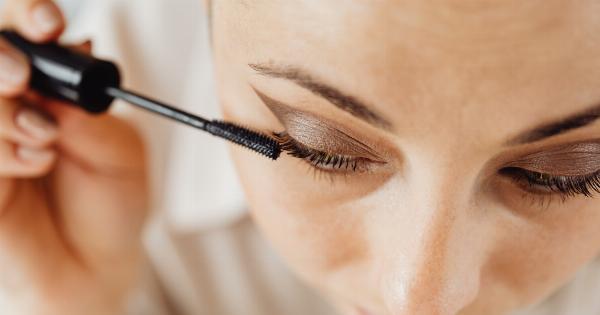Pregnancy is an exciting and transformative time in a woman’s life. However, it can also bring about various changes in the body, including hormonal fluctuations that may lead to acne breakouts.
Dealing with acne during pregnancy can be challenging, as many traditional acne treatments are not safe for use during this period. In this article, we will discuss effective strategies for managing acne breakouts while pregnant, ensuring both the health of the mother and the baby.
The Causes of Acne during Pregnancy
Acne breakouts during pregnancy are primarily caused by hormonal changes. These fluctuations can lead to increased sebum production, clogged pores, and bacteria growth, resulting in pesky pimples and blemishes.
Additionally, stress and dietary factors may contribute to acne flare-ups during pregnancy.
Consulting a Dermatologist
It is vital to consult a dermatologist before starting any acne treatment during pregnancy. A dermatologist will assess the severity of your acne and provide safe recommendations tailored to your specific condition.
They will consider the potential risks and benefits of certain treatments, taking into account the stage of pregnancy and the overall health of the mother.
Gentle Cleansing Routine
Maintaining a gentle cleansing routine is crucial to managing acne breakouts during pregnancy. Opt for a mild cleanser that is free of harsh chemicals and fragrances.
Harsh cleansers can strip away the skin’s natural oils, leading to dryness and potentially exacerbating acne. Cleanse your face twice daily, using lukewarm water and gentle circular motions. Avoid scrubbing or using abrasive tools, as these can irritate the skin.
Non-Comedogenic Moisturizer
Hydrating the skin is essential to maintain its health and prevent excessive sebum production. Choose a non-comedogenic moisturizer specifically formulated for acne-prone skin.
Non-comedogenic products are designed to not clog pores, reducing the risk of acne breakouts. Apply the moisturizer after cleansing your face, gently massaging it into the skin until fully absorbed. This step will help maintain the skin’s moisture balance without worsening acne.
Avoiding Harsh Topical Treatments
While acne medications like salicylic acid and benzoyl peroxide are effective in treating acne, they are not recommended for use during pregnancy. These topical treatments may be absorbed into the bloodstream and potentially harm the developing fetus.
It is best to avoid any harsh topical treatments or consult with a dermatologist for safe alternatives.
Using Natural Remedies
Some natural remedies can help manage acne breakouts during pregnancy. Tea tree oil, for example, possesses antibacterial properties that can combat acne-causing bacteria.
However, it is important to dilute tea tree oil and perform a patch test before applying it to the affected areas. Other natural remedies, such as aloe vera gel and witch hazel, can soothe inflammation and reduce redness associated with acne.
Managing Stress Levels
Stress is known to contribute to hormonal imbalances and acne breakouts. Pregnancy itself can be stressful, so finding effective stress management techniques is crucial.
Engaging in activities such as prenatal yoga, meditation, deep breathing exercises, or indulging in hobbies can help reduce stress levels. Prioritizing self-care and relaxation will not only benefit your mental well-being but may also have a positive impact on your skin.
Eating a Balanced Diet
A healthy and balanced diet plays a significant role in managing acne breakouts during pregnancy. Incorporating plenty of fruits, vegetables, whole grains, and lean proteins into your meals can help support hormonal balance and nourish your skin.
Avoid or limit the consumption of processed and sugary foods, as they can potentially worsen acne. Staying hydrated by drinking an adequate amount of water throughout the day is also essential for maintaining skin health.
Importance of Sun Protection
Hormonal changes during pregnancy can make the skin more sensitive to UV rays. Applying a broad-spectrum sunscreen with a high SPF daily will protect your skin from harmful sun damage and can also help prevent acne scarring.
Opt for sunscreens that are specifically formulated for acne-prone skin and do not clog pores. Additionally, wearing a wide-brimmed hat and seeking shade during peak sun hours can further protect your skin.
Do Not Squeeze or Pop Pimples
As tempting as it may be, squeezing or popping pimples can lead to further inflammation, infection, and potential scarring.
Pregnant women should avoid touching their faces unnecessarily and practice good hygiene by regularly washing their hands to minimize bacteria transfer. Instead of trying to extract a pimple yourself, visit a dermatologist who can safely perform extractions if necessary.
When to Seek Professional Help
Most cases of acne during pregnancy can be managed with the aforementioned tips and remedies. However, if your acne is severe, persists despite consistent care, or is causing significant distress, it is crucial to seek professional help.
A dermatologist can provide additional treatment options, such as safe prescription medications or procedures tailored specifically for pregnant women.
Conclusion
Managing acne breakouts while pregnant requires a gentle and cautious approach. While many traditional acne treatments are not recommended during pregnancy, there are safe alternatives and strategies to control and minimize acne.
Consulting a dermatologist, maintaining a gentle cleansing routine, using non-comedogenic moisturizers, avoiding harsh topical treatments, and managing stress levels are all vital steps in managing pregnancy-related acne. Additionally, practicing good dietary habits, protecting your skin from the sun, and refraining from squeezing or popping pimples will contribute to a healthier complexion.
By following these guidelines, pregnant women can effectively manage acne breakouts and maintain the overall health of both themselves and their babies.





























